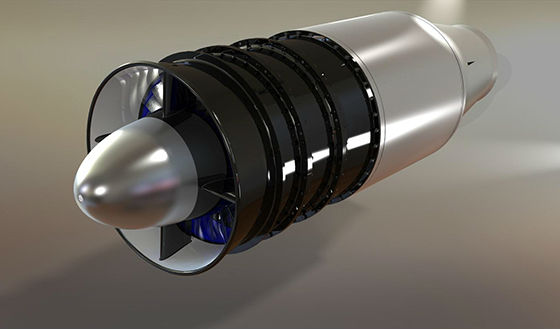A small Brazilian company has unveiled the country's first turbojet engine designed and manufactured in-country to start filling a critical gap in the nation's aerospace industrial base.
Polaris expects to begin test flights of the 1,000lb-thrust (4.45kN) class TJ1000 on board the Avibras AVMT-300 Matador cruise missile in the next three or four months, says company director Malrum Medici.
"It's a technological breakthrough in Brazil," he says.
Brazilian manufacturers offer a broad range of commercial and military aircraft, as well as avionics, air-launched weapons and airborne sensors. But the country has always lacked a native supplier of jet engines.
Polaris was formed in Sao Jose dos Campos in 1999 by former Embraer engineers to address that deficiency.
The TJ1000 is aimed at a growing market in Brazil for turbojets to power cruise missiles, target drones and unmanned air vehicles.
 |
|---|
| Polaris |
The 70kg (154lb) turbojet features a four-stage axial compressor, which comprises a single piece of aluminium. It is listed with an annual combustor and a one-stage turbine.
Polaris is already looking beyond the AVMT-300 for future applications. By adapting the TJ1000 with a turboshaft architecture, Medici says the Avibras Falcao UAV could become a near-term opportunity. The Falcao project was recently absorbed into the Harpia joint venture, which also includes Elbit Systems subsidiary AEL Sistemas and Embraer.
In the long term, Polaris hopes to offer a certificated version of the turboshaft engine to replace the Pratt & Whitney Canada PT6-powered Embraer T-26 Tucano basic trainer. Polaris is considering a reverse airflow design, which is similar to the PT6 architecture, Medici says.
Such a project would require government support in order for Polaris to afford the costs of certification, he adds.
Source: Flight International























